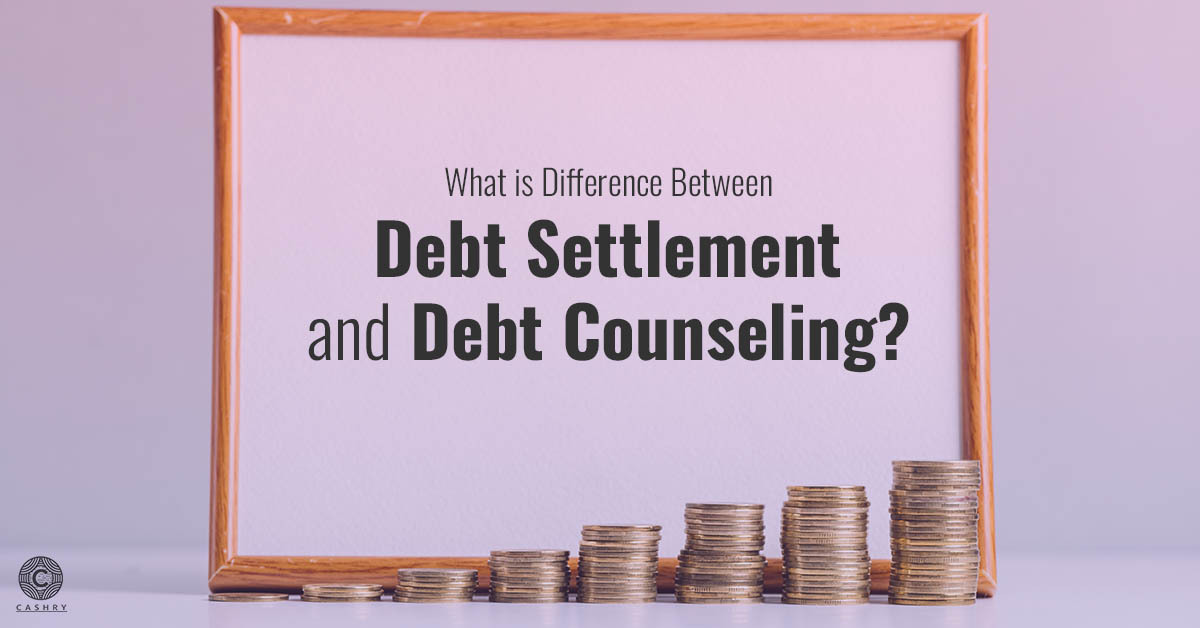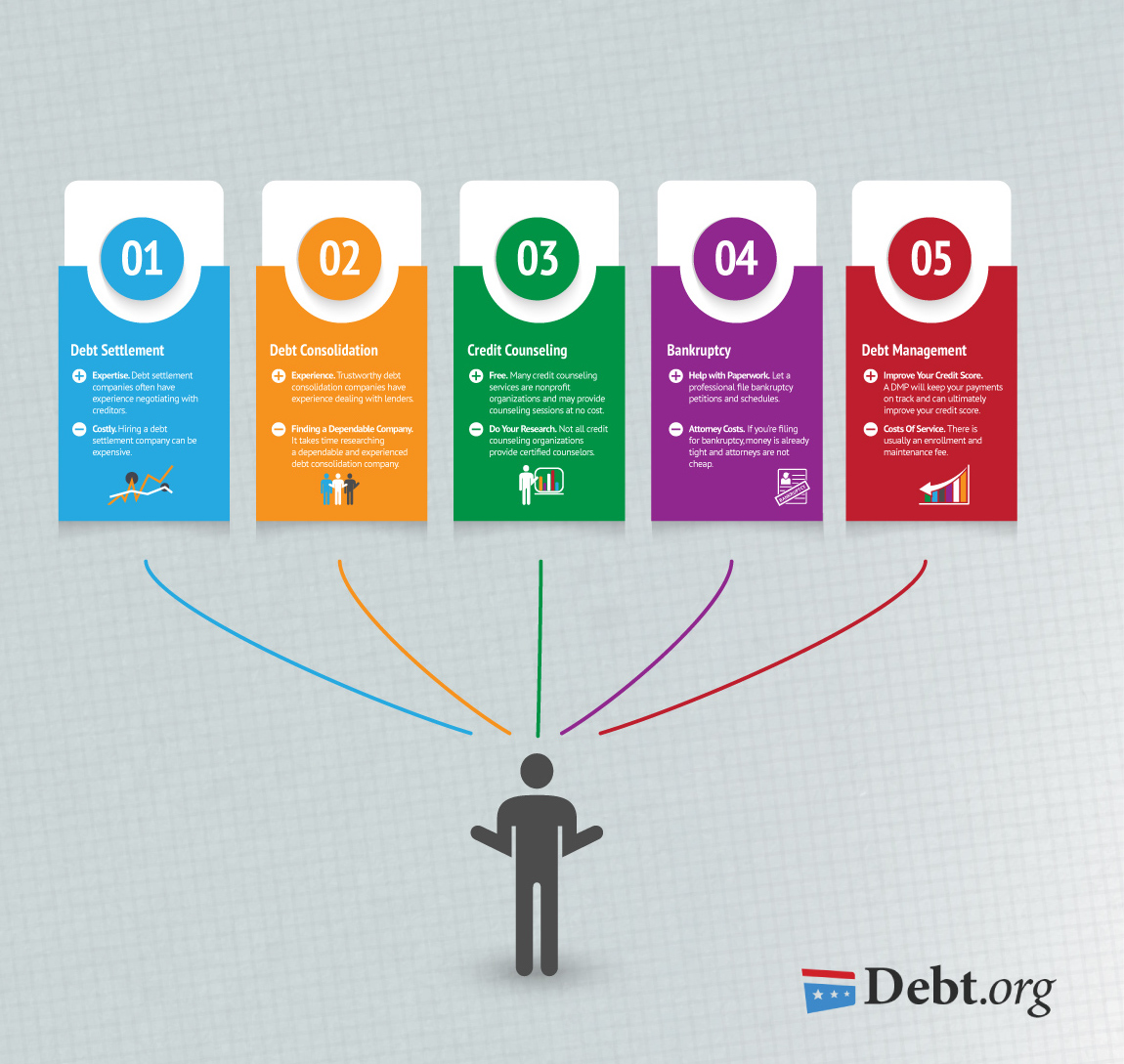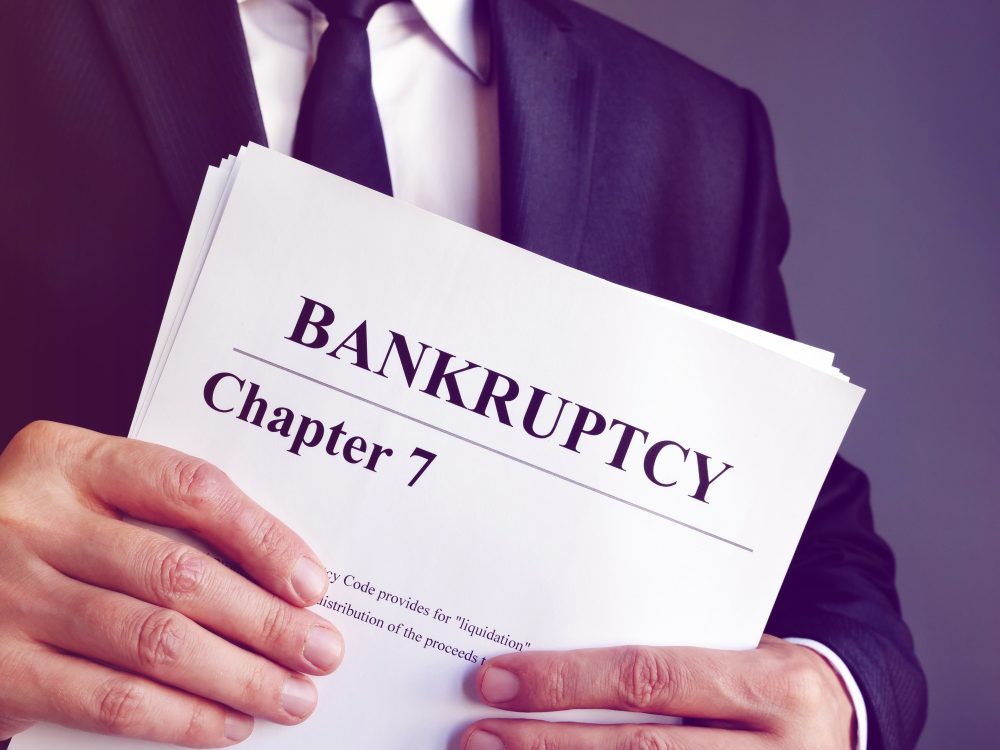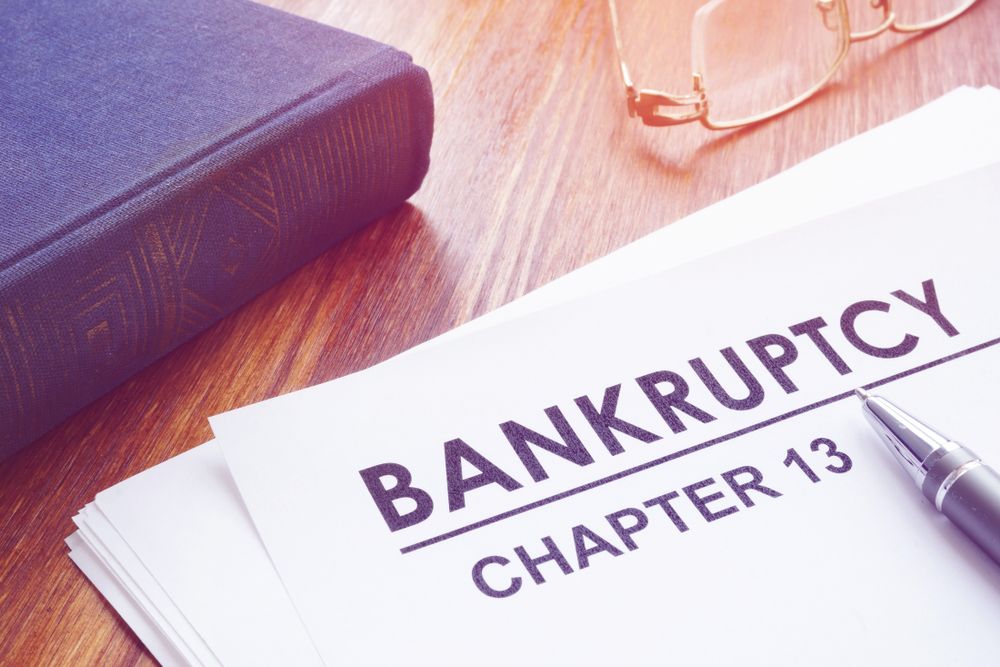What is the Difference Between Debt Settlement and Debt Counseling?

You see and hear them absolutely all the time: offers to lower or wipe away your debt or settle your debts for a fraction of the amount. They literally pop up in front of you all the time. Case in point, as I write this, I got an email notification. The email came from –you guessed it– a debt relief company. It is nearly impossible to ignore these advertisements. It usually comes from Debt Settlement vers Debt Counseling companies
If you are under a crushing amount of debt, these offers might bring mental images of that mountain crumbling and blowing away with the wind. Perhaps you can imagine how good the freedom would feel, and what all you would do with it gone. Would you take a vacation? Finally buy a home? Take your family out for a celebratory dinner? Maybe you would just like being able to enjoy a day off without worrying about money.
I completely understand! I know what debt feels like. The way it feels like it has a strong grip around your throat and you simply cannot breathe. Or how it feels to sacrifice things you really need because of it. What it is like to stare at a stack of bills trying to decide what extra one you can squeeze in that month. And I definitely know what it feels like to avoid answering your phone for fear of who is on the other line. They want to know when you can make a payment- so do you.
Don’t feel ashamed!
These feelings of guilt, shame, fear, frustration, and overwhelm are what makes us perk up. They are what make us listen when we hear those debt relief advertisements. They play on the emotions we are dealing with. The aim is to make us pay attention and call that company. That is the way advertising works- at least successful advertising… Anyway!.
You may be tempted to pick up your phone the second you hear the phone number. However, pump your brakes…What do you really know about these debt relief organizations? At the moment, probably nothing more than what you hear on the advertisement. What about debt counseling? Uh oh- do you even know the difference in debt settlement versus debt counseling? Many people don’t. However, have no fear… Debt Relief 101 is here!
What is Debt Settlement Versus Debt Counseling?
Let’s start with some basics. What each of these terms mean:
Debt Settlement
The simplest way to define the term debt settlement is that the creditor settles on a smaller amount than the full debt due. If this occurs, they typically expect the settlement amount in full. A debt settlement company is a middle man for negotiating settlements and paying the creditor.
Debt Counseling
Debt counseling is actually getting advice about your debt. A debt counseling company will look at your budget and your income to help you make a plan. There is no negotiation involved, but some will accept your payments and distribute them among the creditors.
The biggest part of debt counseling is actually being counseled on handling your finances and debt. In short, debt settlement versus debt counseling both have beneficial ways and means of helping you get out of debt, so let’s dive a little deeper into each.
Similarities and Differences of Debt Settlement versus Debt Counseling
There really are few similarities between the two.
Both can help you get your debt paid, but through different means. Debt settlement companies will speak with creditors for you. You will make a payment to them each month, and they will split that money among the creditors.
With a debt counseling company, you will sit down with your counselor and discuss your finances, i.e. budget, income, debts, and so forth. They will help you make a budget that can work debt payments in. Do not be surprised when they tell you something along the lines of you need to cut down on your Starbucks trips or on eating out. That is part of the debt counseling. It is more than simply making a budget. It is about learning to make wiser decisions that will improve your overall financial situation and help you get and stay out of debt. The work, however, belongs to you.
Debt counseling will likely also include free educational materials. While they do not negotiate settlements, they may speak to the creditors on your behalf to lower interest rates or get you longer repayment terms.
Do They Really Work?
On a very basic level, anything that you do to make payments on your debts will improve your credit. However, if you are looking for a quick fix, I have really bad news: there is no quick fix. Sorry. I wish there was but there just is not. Nothing, not even death in most cases, will make your debt disappear. It may transfer to someone else but it does not disappear.
There is no magic eraser that will wipe it all away. What about bankruptcy? you ask. We will go into some deeper information about that below, but for now, just know this: the debt is still owed and the bankruptcy affects your credit. It is not a quick fix or an easy solution, your credit and your wallet will still be affected for years to come. So, no, bankruptcy is not that magical eraser.
Ok, now that the bad news is out of the way, let’s share some good news: it can be fixed with some patience, diligence, and hard work. And you have a few different options to get it done.

Choosing Debt Settlement
1. Choose the company
Choosing to use a debt settlement company is a great option for those who simply do not want the headache of dealing with creditors on their own and have no problem paying someone else to do it for you. If this is you, there is no shame in the game, but you need to understand what is going to happen.
When you decide on using debt settlement company versus debt counseling, you will first need to choose the company you want to work with. You should always read ratings and reviews- preferably some that are not on the company’s website. Do they get results? Do they have good customer service? Do other customers feel that the cost is justified for the company’s level of performance?
2. Make sure you understand the cost
Speaking of the cost, you are not obligated to a single fee until three requirements are met. According to the Federal Trade Commission, these include :
- One debt being settled, negotiated, or changed at least one debt’s terms;
- An agreement has been made between you and the creditor; and
- You have to have made at least one payment to the creditor according to the agreement.
If these requirements have not been met, you owe no fees to the debt settlement company and are not obligated to them. If the company attempts to charge you a fee beforehand, look for a different company.
3. Make up your plan!
After you have chosen your company, you will speak with a representative about your financial situation and your debts. They will normally get your credit reports to help make a plan, but if there is a debt not on your credit report, you need to tell them. After debts are discussed, you will go over terms, ideas, monthly fees, and so on. Most often, they will take some time to look at your credit report and come up with some solutions before calling you back for a second talk.
4. Start making payments
Once plans have been made, agreements are drawn up, and all the legal stuff is taken care of, you will start making payments to the company that will then be dispersed among those creditors. Over time, your debts will be paid down and off. Some people begin seeing improvement in months but sometimes it can take longer.
Some people steer clear of debt settlements because they fear that settlements will be bad for their credit. However, credit bureaus report that whether you pay the entire amount or a settlement, the impact is only a few points from one another. In other words, settling on debts and paying them off will both save you money and improve your credit score pretty much the same amount as paying off the full amount would.
Also, be aware of any debt settlement company that tells you to stop making payments while they negotiate. Until you have made your first payment through the debt settlement company, the debt can still hurt your credit. Do not ignore them, and do not stop making payments.
Choosing Debt Counseling
If you are simply overwhelmed and have no clue where to start, debt counseling might be a better option. I have a few friends that literally just throw their bills, debts, receipts, and check stubs all over the place. When I have tried to help a couple of them make sense of things, we had to first create order out of chaos. Once that was done, though, we could make a clear plan.
This is the basic principle behind debt counseling: the company can make order out of chaos. Although you should really try to be as kind as possible to your debt counselor, it is possible to take a box of financial papers, i.e. bills and income, and simply hand it over. They may take a deep breath and sigh, but that’s okay…don’t you do the same when you see the disorganized stack?
1. Choose your company
Debt counselors can be found all over, but finding one in your area may be best. This is especially true if all of your financial documents are in a mess. You can sit down with your counselor and organize the chaos together. Trust me when I say that this step alone can make you feel more in control.
2. Have a conversation
After you have it all organized, you and the counselor can talk about what is going on and how to fix it. Debt counselors can actually give you a plan of what steps to take, and this plan can give you even more confidence. If you follow it, you will find yourself digging out of the hole. If you do not, the debt will go nowhere. The choice is up to you.
In this way, debt settlement versus debt counseling is better because you only need to make the payment every month, not do the work yourself. Though doing that work is beneficial, if you do not have the willpower to stick with it, you are better off letting someone else handle it.
Bankruptcy
I said we would talk about this more, so here we go. When I was a kid, there were two common types of bankruptcies: Chapter 7 and Chapter 13.
Chapter 7
Chapter 7 is what most people think of when they think about bankruptcy. It “wipes away” debt. Let’s be clear on this though: it does not get rid of any taxes, student loans, child support, or alimony.
The debt is not just wiped away into thin air, either. The debtor’s assets are stripped from them and sold to covers as many of those debts as possible. There are times that you might get to keep your home or other property, but do not count on it. Also, the bankruptcy stays on your credit for years, and many creditors will not deal with those who have filed bankruptcy in the past. Chapter 7 is also not so common anymore.

Chapter 13
Chapter 13 bankruptcy has become the more common type. I am going to give it to you straight: this is basically the same thing as debt settlement and debt counseling. You file for Chapter 13, you are assigned a trustee, and you will work with that trustee to create a repayment plan. If the court accepts the plan, you will then make payments to the trustee who will pay your creditors for you. Sound familiar?
Chapter 13 is probably the worst of these options because it negatively impacts your credit, and you cannot get any additional credit in the meantime- like, at all. You cannot open new credit cards, retail accounts, or anything else. It is not a good move if you can avoid it.

Do It Yourself
I want to point out something very, very important: there is literally not a thing that debt settlement vs debt counseling vs bankruptcy can do for you that you cannot do on your own. Not one thing. And if you do it yourself, you save yourself some money. You can get your debts settled for lower payoffs, you can create a payment plan, and you can sale any assets to help pay. The good thing, though, is that you are in charge of what you sell and what you do not.
You can do everything they do!
The only real downside is that you have to do it yourself. You have to put the time and energy in, but it is extra rewarding. Are you ready to give it a go? I am going to give you some assistance and advice here and now- no fee necessary.
1. First, there is a little prep you need to take care of
You need at least a couple of uninterrupted hours. Pick some comfortable- but not too comfortable- clothing. Gather your bills and other financial documents, a calendar or planner, a pen and notebook, a calculator, and some type of folder or binder to keep everything in. Get your phone but put it on complete silence and turn it upside down on. You do not even need to let it vibrate. Last, find a comfortable space you can spread out- a dining room table or desk with a clear surface.
It is also good to have some water, coffee, or your other favorite beverage within reach. Start by organizing your chaos. Keep it simple for now- simply put like items together, i.e. ongoing bills with ongoing bills, debts with debt, receipts with receipts, and so on. Grab your ongoing bills first and open up your notebook. List those bills along with their monthly amounts and due dates. Write the total at the bottom of your page. We will come back to this amount.
2. You need to get your receipts and turn to a fresh page
We are still keeping it simple, so let’s only look at the last three to four weeks. Write categories on your fresh sheet. These categories are what you spend your money on such as regular household items (cleaning supplies, light bulbs, batteries, and so on), health and beauty items (body wash, cologne, perfume, toothpaste), gas and auto maintenance, fast food, snacks at work, and so on. Even small items add up, so if you buy a pack of gum a few times a week, add it in. With the help of your receipts, add up the total amount that you have spent on these categories in the last month.
On a fresh page, list your assets. These include anything as large as your 401K and as small as some personal items you can sale. I’m not asking you to list every single shirt you want to sale, just an idea of how much you could make off of each asset type. If you have a car you would like to sell, you can check the value through the Kelly Blue Book.
After all of that is written and organized, you have the beginnings of a budget and financial plan. You should also add a page for savings goals, but you can come back to that later. For now, turn your page and make a list of the monthly bills you could get rid of- like if you pay off a car or a credit card. Then, grab your stack of debts and take a deep breath.
3. Start by organizing these debts into two categories
The 2 categories are the following :
- Those that list only the full debt due in one stack
- Those that have included a settlement offer
If you have had a debt for a long time frame, you will begin to receive settlement offers from creditors who are willing to settle. For the moment, put the other debts away. Those will keep until another day.
Looking at the settlement amounts, put those debts in order. It does not matter if the time they mentioned has passed already. If they were willing to settle before, it is likely that they still are. Before we go one step further, there is something very important to point out here: you do not need any negotiation skills to complete this next step.
Although debt settlement companies claim to “negotiate” your debts, that really is not the correct term. Creditors do not negotiate. Instead, they have rules and protocols of the percentage of your debt that they are willing to forgive. Negotiating will not change that amount. Debt settlement companies cannot change that amount.
In other words, you are paying a debt settlement company partially for calling the creditor and saying, “What is the least you will accept?” They do not argue or debate the price. They ask a question, the creditor gives them the same answer that they will give you. Also, most creditors will not even speak to debt settlement companies, so calling yourself is better anyway.
4. Have a look at your money
Before you make any phone calls, take a look at the money you have going out each month and how much of that you can actually stop spending. Determine an amount that you can put towards your debt every month. Unless there is an absolutely emergency, that amount needs to go toward a debt each month.
After you have set an amount, pick up one the first debt in your settlement stack and give the creditor a call. There is no special formula or magic words. Give them your name and your account number, which should be printed somewhere on the bill. They are going to say something about it being a recorded line and this is an attempt to collect a debt. You simply need to agree. After these formalities are out of the way, all you need to do is say something like, “I want to pay this debt but cannot afford the full amount. Is the settlement offer still available?”
More than likely, they will say yes. Why? One reason is because they would rather recoup some of their losses than none of them. Another reason is that the amount of that settlement offer falls into the guidelines of how much they are willing to accept. If they have sent you an offer, they are willing to negotiate. So, if you have the money, make the payment. On the other hand, if you do not, you can usually ask them to give you around thirty days to get the payment in. You will then either add that payment to your monthly budget, or call the next creditor.
Congratulations!
You have successfully “negotiate” a debt settlement. It really was not that hard, was it? From this point forward, you will simply continue making phone calls and making payments until all of those that offer settlements are paid off. The ones that will not accept settlements might still help you out by lowering your interest rates, extending your repayment period, or something similar. Give them a call to find out.
Taking Advantage of Quick Offers
What do you do if the creditor does not give you thirty days to make the payment? You can instead accept an offer of a payment plan, if you choose, or you can get small short term loans to pay it now. I know that taking out a loan to pay debt seems a little counterproductive, and for a short moment, it kind of is. However, paying the debt off now may save you more in interest than you pay for the loan. And you really should pay off small cash loans quickly. Do not let them rack debt back up- they should be no more than a few weeks’ solution.
If you have a credit card and have enough credit left to pay the debt, use the credit card and then pay it as soon as possible. If the creditor only accepts cash or check, like your landlord, you can get a tiny cash advance from your credit card to help you out. There will likely be a fee, though, so be sure you are saving at least the amount you will be paying in fees.
Conclusion
I hope that this information has helped you differentiate between debt settlement versus debt counseling, and has given you a direction to move in. I also hope that you feel confident enough now to take control of your debt and get it off your back. We discussed a few different ways to do that. When it comes to choosing between debt settlement versus debt counseling and any other option, it all comes down to which one will benefit you and your financial situation the most. Consider the options carefully, then make a bold move towards living debt free. And please, don’t forget that you are not alone! Many people are going through debt issues.
One last thing! As long as you can, creating a savings account and including it in your monthly budget is a good point. It shall work as an emergency fund and should help you with debt issues you could have in your life!
You could start by having a look right there:


Brandy Woodfolk is an educator, home business owner, project manager, and lifelong learner. After a less than stellar financial upbringing, Brandy dedicated her schooling and independent studies to financial literacy. She quickly became the go-to among family, friends, and acquaintances for everything finance. Her inner circle loves to joke that she is an expert at “budgeting to the penny”. Brandy dedicates a large portion of her time to teaching parents how to succeed financially without sacrificing time with their little ones. She also teaches classes to homeschooled teenagers about finances and other life skills they need to succeed as adults.
Brandy writes about smart money management and wealth building in simple and relatable ways so all who wish to can understand the world of finance.

